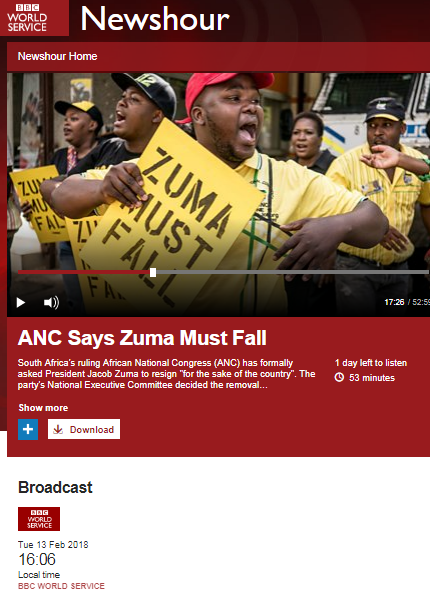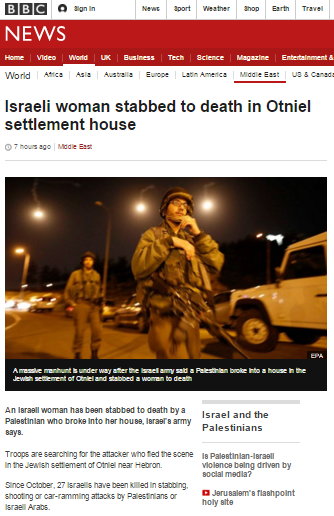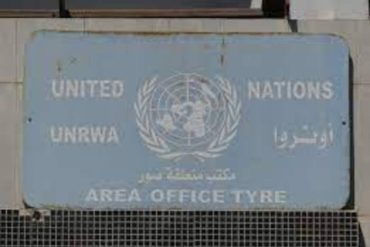Back in October 2016 the BBC Jerusalem bureau’s Yolande Knell produced an article on the topic of succession within the Palestinian Authority but since then the BBC has failed to report on subsequent related events such as violent clashes between supporters of Abbas and Dahlan, Abbas’ unanimous re-election as head of the Fatah party, the seventh Fatah party congress and the appointment of a new Fatah vice-chair in February 2017.
The Fatah Revolutionary Council recently held a three-day meeting in Ramallah and according to reports, the man appointed vice-chair last year has now been named as Mahmoud Abbas’ successor.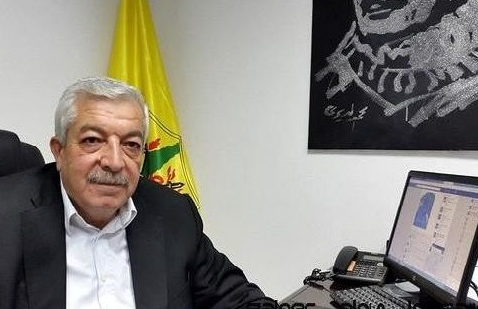
“Palestinian Authority President Mahmoud Abbas will be replaced by his deputy, Mahmoud al-Aloul, if he becomes unable to fulfill his duties, Fatah’s Central Committee decided in Ramallah on Saturday.
According to Palestinian media outlets, Fatah’s Central Committee decided that should Abbas, 82, were unable to continue in his role, al-Aloul will be appointed “acting president of Palestine for a period of three months until elections can be held.” […]
“The amendment to Palestinian law on the matter of transferring Abbas’ presidential authorities to his deputy Mahmoud al-Aloul, was made in light of rumors regarding Abba’s failing health,” one council official said.”
So what do BBC audiences know about the man apparently set to replace Mahmoud Abbas? The answer to that question is very little indeed. While BBC audiences saw no reporting on Aloul’s appointment to the position of vice-chair of Fatah in February 2017, in an article published seven months later he was described simply as “Fatah’s deputy leader”. In a BBC report from 2004 Aloul’s name is among those described as “prominent Palestinians” who signed what the BBC portrayed as an “appeal for calm” – even though the text concerned states:
“…we call upon our people, for the sake of our national interest and in order to bring an end to the occupation, to repress their rage and rise once again in a widespread popular intifada…”
A profile of Aloul compiled by the Washington Institute for Near East policy in 2015 includes the following:
“Following the 1967 Israeli occupation of the West Bank, Mahmoud al-Aloul was arrested by the Israeli army for participating in organized violence against the army. Three years later, the army freed Aloul, deporting him to Jordan. He immediately joined other Fatah members and leaders in Jordan and was appointed to the “Committee for Deportees from the Homeland” and the “Western Sector,” the Fatah wing responsible for organizing militant activities in the Palestinian territories and Israel. However, in 1973, a little more than two years after his arrival, Jordanian authorities banished him and he relocated to Lebanon. There, he engaged more deeply in military activities and the Western Sector, serving as an assistant to Khalil al-Wazir (Abu Jihad), a top advisor to Arafat and Fatah military leader, and leading a military brigade in both the Mount Sannine and Mount Lebanon areas in central Lebanon. After Israel occupied southern Lebanon in 1982, he commanded the “special forces” units in Tripoli (Lebanon) and the Beqa Valley responsible for capturing six Israeli soldiers in 1983 and facilitating a major prisoner swap between Israel and the Palestinians.
Shortly after the Palestinian leadership was expelled from Lebanon, Aloul moved to Tunis and remained Wazir’s special assistant but also began forming special forces units in different Arab states. When Wazir was assassinated in 1988, Aloul was promoted to the position of secretary-general of the occupied territories committee. After the Oslo Accords, Israel initially did not allow Aloul to return to the Palestinian territories because of his previous military activities, but did permit him to return in 1995. He was immediately appointed governor of Nablus and served until he was elected to the PLC and appointed labor minister in 2006. He was elected to the Fatah Central Committee in 2009 and currently serves as the commissioner of mobilization and organization.”
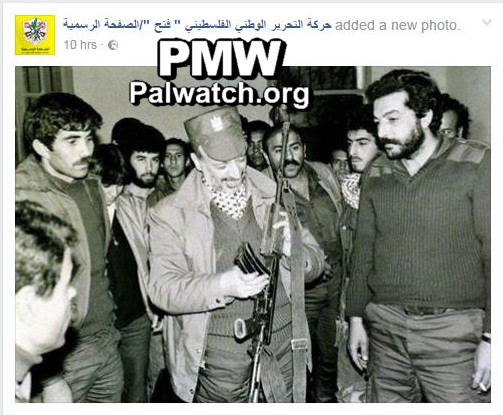
As CAMERA’s Sean Durns has noted, the man to whom Aloul was “special assistant” was responsible for the murders of scores of people.
“…Abu Jihad oversaw the assassination of US diplomats in Khartoum, Sudan, in March 1973. Abu Jihad was also responsible for perpetrating and planning numerous terrorist attacks against Israelis, including the 1978 Coastal Road massacre, in which 38 civilians, including 11 children, were murdered.
In addition to his involvement in murdering no less than 124 Israelis, Abu Jihad also served as the Palestine Liberation Organization (PLO) and Fatah’s liaison with the Soviet Union, the Syrian Baathist party and the Muslim Brotherhood.”
An article published by the FDD after Aloul’s appointment as vice-chair of Fatah notes that:
“Within Fatah’s upper echelons, al-Aloul assumed the portfolio of mobilization and organization within the party, and in that role he has had an active presence. He is frequently spotted leading protests in the West Bank, and in November of last year, he gave a speech where he declared: “When we talk about our enemies, we talk about the [Israeli] occupation and the United States.””
However, given that the BBC Jerusalem bureau’s chronic under-reporting of internal Palestinian affairs persists, audiences remain unaware of the record of the man who could replace Abbas as president of the Palestinian Authority at any moment.
Related Articles:
BBC News ignores the story of the new Fatah vice-chair
Airbrushing terror: the BBC on Abu Jihad

